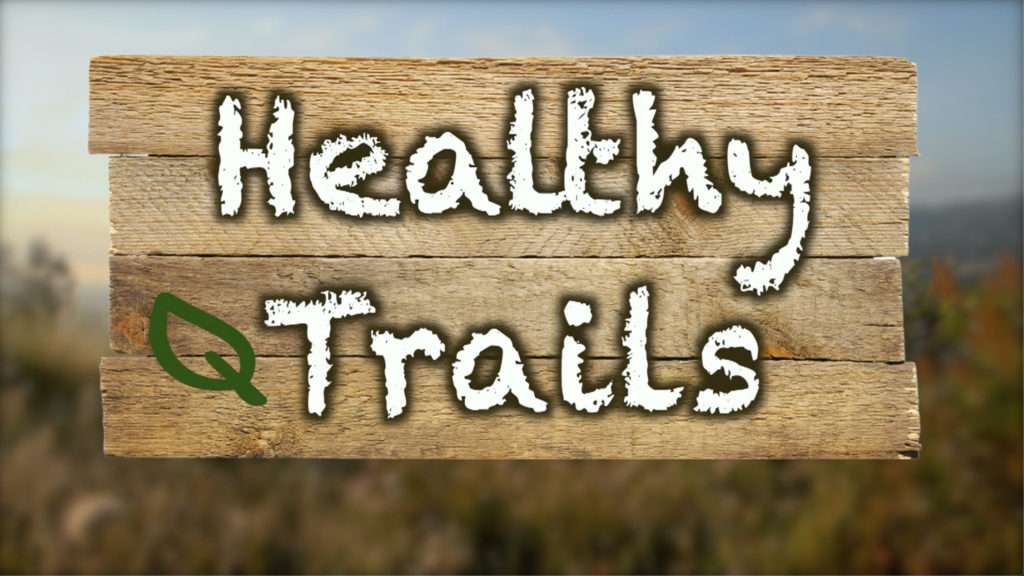A Pandemic Newsletter
As we pass the one-year milestone in lockdown and are (hopefully) moving toward safely gathering together in person once again, Wildwoods is taking a moment to catch our collective breath and reflect.
The past year has been one of tremendous growth as well as one of tremendous challenges. We learned to “practice what we preach” about the laws of nature and ecoliteracy, and to apply it organizationally: Adapt. Evolve. Survive.
Thankfully, more than just “surviving,” we have thrived, as you will see…
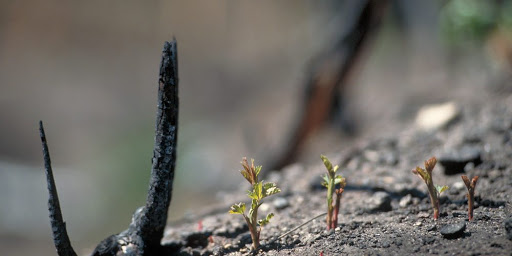
Justice, Equity, Diversity, and Inclusion
As you might imagine, the majority of our energy last year was directed at responding to needs and challenges posed by the pandemic.
But an equally important part of our energy last year was directed at racial and social issues. The murder of George Floyd and the resulting protests motivated us to draft a Diversity Statement (with a distinctly ecological perspective) and promote the Black Lives Matter movement in our social media.
And our board took action on increasing the diversity of community representation around our own meeting table. At the beginning of 2021, we onboarded two cohorts, significantly expanding the cultural and ethnic makeup of our board.
Then, prompted by the Sierra Club’s reflection on the controversial elements of John Muir’s writing, we conducted an internal review of our own language and artifacts, taking the opportunity to develop more culturally appropriate and inclusive language.
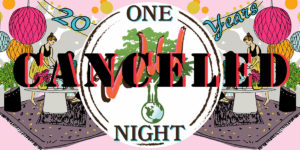
Anniversary Event Canceled
A year ago, we shuttered our office and ceased all programming. We canceled a weekend retreat for our Oakgrove program. And -with heavy hearts- we canceled our 20th-anniversary celebration that had been planned for April 2020. We canceled everything.
In all honesty, I fully expected that this would be the end of the organization. As the reality set in that COVID-19 was not going away anytime soon, we were faced with the question of how programming that was very interactive, hands-on, and experiential could be transitioned to the digital realm?
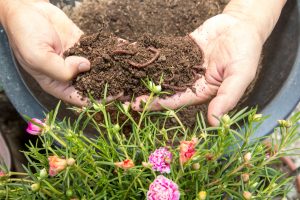
Pivoting to the Need
The first thing we did was to launch Nature Rescue Squad, a weekly series of nature connection activities for parents managing at-home learning.
Next, we moved our weekly after-school program for foster youth (and a support group for their caregivers) online. First, we had to cross the digital divide (not all families had sufficient connectivity or devices to allow participation) by convincing the funder to redirect some of our budget to help meet their technology needs.
Likewise, we knew that many of these families were facing food insecurity. So we reached out to the Seeds of Hope project operated by the Episcopal Diocese of Los Angeles and set those families up in that program. We even delivered the first box of fresh vegetables (a complete above-and-beyond action by one of our team).
We made the decision to just help however we could. Even if it was outside of our area of expertise, we felt the call to do what we could to respond to our community’s needs, whatever they were.
Our staff became socially-distant delivery drivers, providing contact-free drop-off; from school supplies to garden supplies. And even though the personal connection was brief and distant, you could tell that folks were smiling behind those masks.
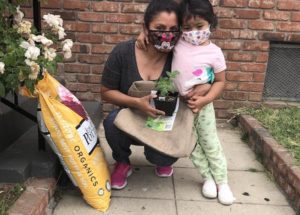
SeedLinks
One of the things of which we are most proud is a new program (SeedLinks) that evolved from our Learning Garden project at the Magnolia Place Family Center, where parents volunteered to maintain the garden at the preschool there.
After the preschool shut down, our garden coordinator Ashley harvested the flowers and vegetables, then delivered those to the “garden mom” volunteers. Each of them asked if we could help them start gardening at home. So, with the support of a local garden supply store, and using the seedlings from the preschool garden, we helped those families set up container gardens suited to their space.
Since then, SeedLinks has grown to serve more than 40 South LA families, each tasked to “plant it forward” and share their harvest and recruit others to urban gardening.
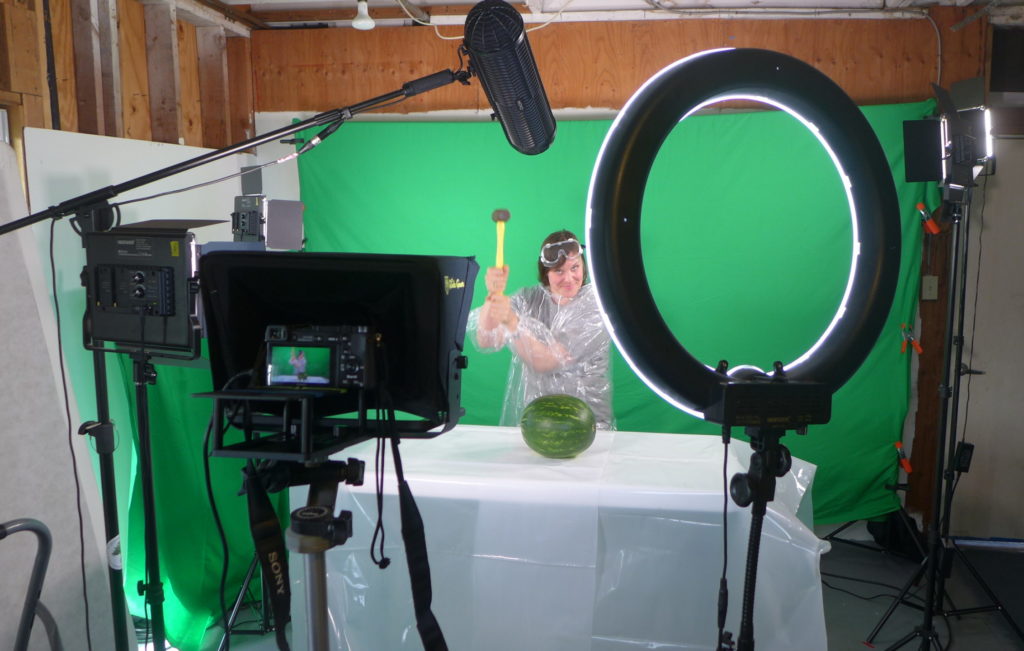
Online Content
Seemingly overnight, we became a video production team. We made two videos about water science and conservation as part of our program A Drop in the Bucket with the LA Department of Water & Power. And we crafted parts of our in-person curriculum into online interactive, educational games.
Using green screen technology that allows us to combine animation and graphics onscreen with our instructor, we developed a live-streaming version of A Drop in the Bucket that we deliver via Zoom. It has been a big hit with students and teachers.
In the summer, we hosted our Eco-X summer camp for foster youth as a remote program. We sent program materials to each home: a butterfly garden, a magnifying lens for smartphone cameras, a journal, and arts & craft supplies. And following our in-person format, we arranged for behind-the-scenes virtual tours of the Natural History Museum, the Aquarium of the Pacific, and the Los Angeles Arboretum, and for up-close animal experiences with Wildlife Encounters and Matt’s Reptile Family.
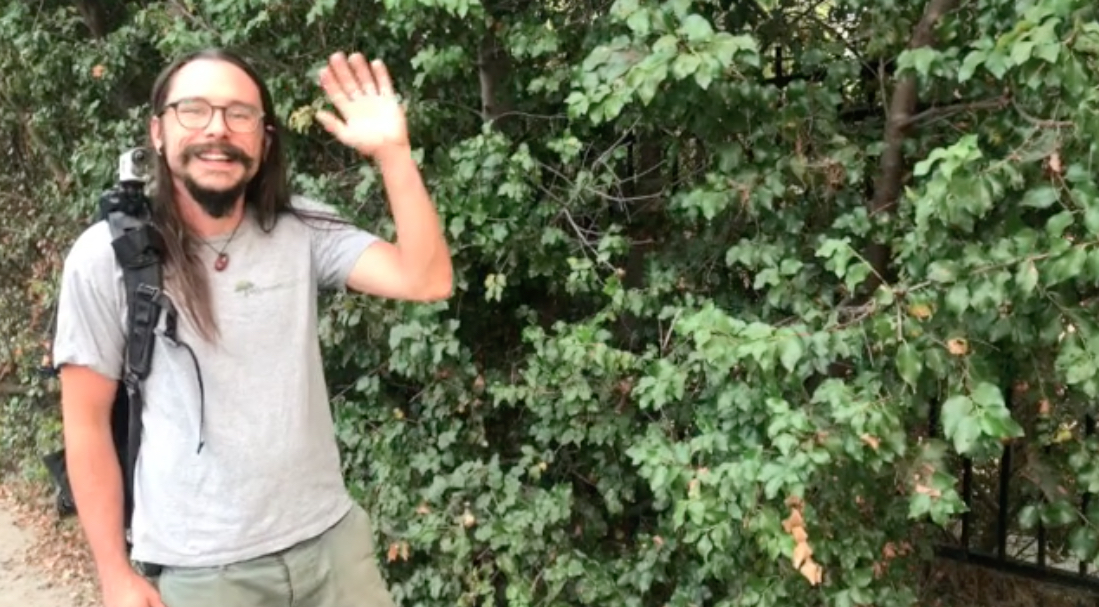
Wildwoods LIVE
During Eco-X we began experimenting with live streaming from the field. Seeking a way to deliver high-definition video and audio in real-time, we discovered a device called an IRL (In Real Life) backpack.
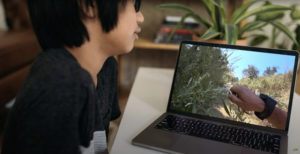
A camera mounted to the shoulder strap sees what our instructor sees. And the modems and router in the pack streams the signal to youth at home in real-time. We have dubbed these virtual field trips “Wildwoods LIVE,” and have developed programs for trips to the Los Angeles River, Malibu Tide Pools, the Ballona Wetlands, and the Natural History Museum.

Expand LA
At the end of last summer, Wildwoods was invited to join with other STEM and environmental organizations (including the California Science Center, the Natural History Museum, the Friends of the Los Angeles River, and TreePeople) to provide online programs to LAUSD students. In a massive coordinated effort, the collective (now known as Expand LA) provided school-day and after-school programs to thousands of Los Angeles students.
In addition to providing Wildwoods LIVE virtual field trips, we revisited our Full Circle curriculum (recipient of the California Governor’s Environmental and Economic Leadership Award for Environmental Education) and distilled the core elements of that program down to the essential concepts that could be delivered via online activities.
The Expand LA collective continued through the spring semester and is now preparing for summer programming.
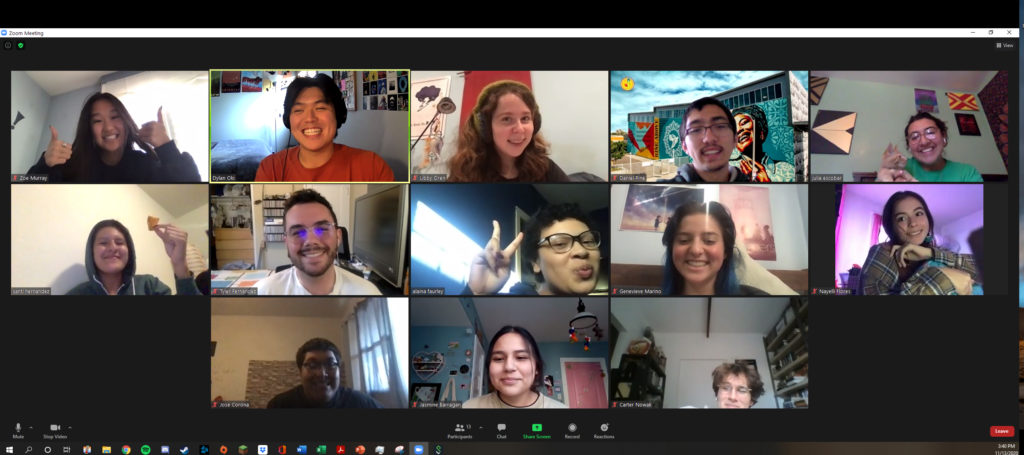
Oakgrove
At Venice High School, even though it was impossible to hold the in-person weekend Oakgrove retreat at a camp in the mountains, the students and alumni came together to conduct weekly “Mini-groves” online. These virtual meetings quickly turned into a support network in that school community, helping students deal with the social and academic stress of the pandemic.
Healthy Trails
Finally, there is our Healthy Trails project, a collaboration with the Children’s Hospital of Los Angeles that was set to begin just as California went into lockdown. The original, pre-pandemic plan was to conduct an after-school park program for patients from one of their family clinics downtown.
Since that was impossible, we settled on the idea of producing a series of short videos of a hike in a local park. The big surprise came when I went back to our team with the idea only to have our instructor Clay say, “I was one of those kids.”
While I had known that Clay lives with Type 1 diabetes, I had not known that he’d been diagnosed when he was in kindergarten and spent a week in a children’s hospital in Pittsburgh. So, our Healthy Trails video turned into Clay’s story, about how a chronic illness doesn’t mean that you can’t lead an active, outdoor life.
As with our other remote programs, we plan to continue to develop Healthy Trails with the hopes that we can reach even more children and families beyond our traditional geographic service area.
The first of Clay’s four episodes in Griffith Park is available here: Amir’s Garden.
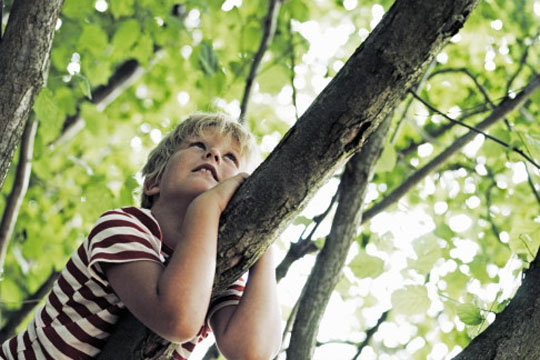
What’s Next?
So, yeah… this was a crazy long post. Because it’s been a crazy busy year.
We started pulling together this information and writing this report exactly one year from the day that we’d shuttered our offices and ceased all programs (3/13). For a while, I feared that the pandemic lockdown would mean the end of the organization.
I’ve never been so happy to be wrong in my life.
Instead, what happened was that we discovered new ways of being. And new ways of being of service. New ways of connecting with our community. And through that process, we have also discovered new program opportunities and created strategies for growth.
I can’t wait to tell you about those ideas. But that’s an email for another day. ; )
I look forward to the time that we are finally able to get back in the classroom with children, out on the trail with families, and gathered together with our friends (we’ll get around to celebrating our 20th anniversary eventually).
But until then, be well and go outside!
Sincerely,

